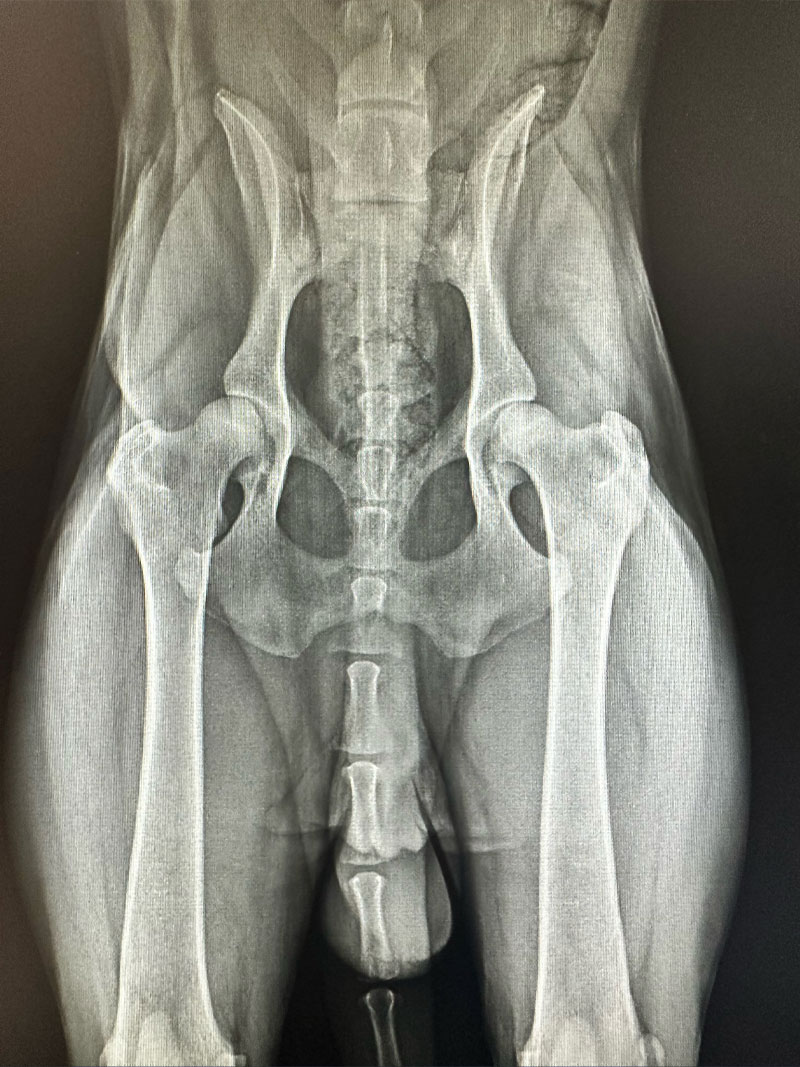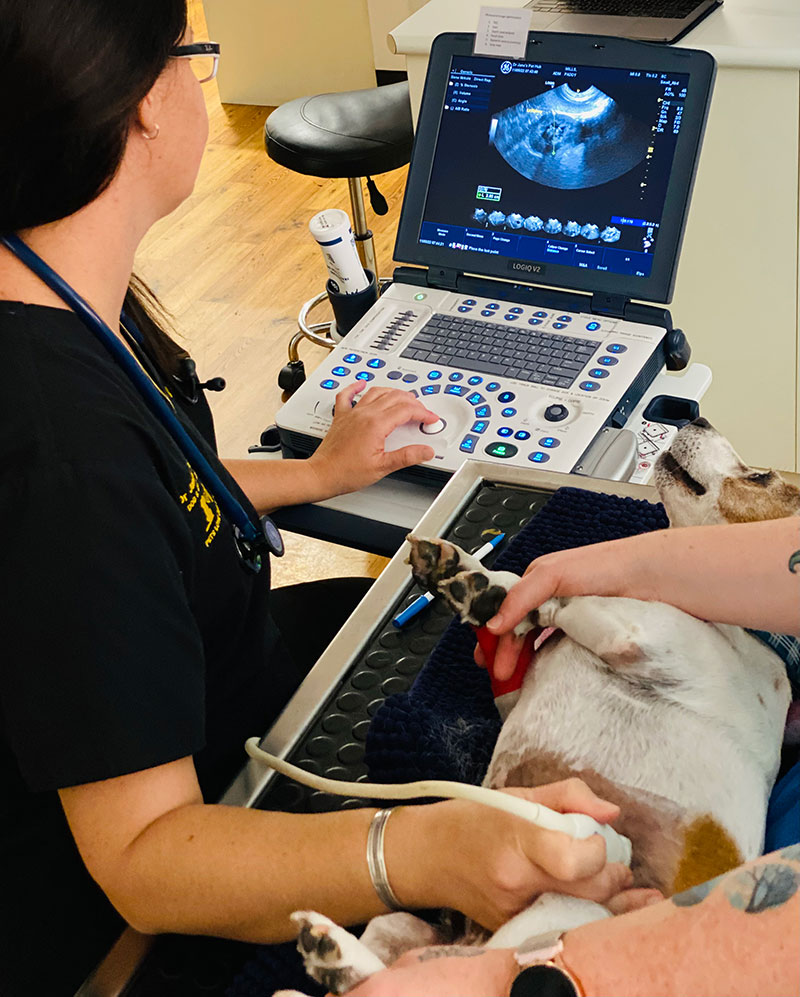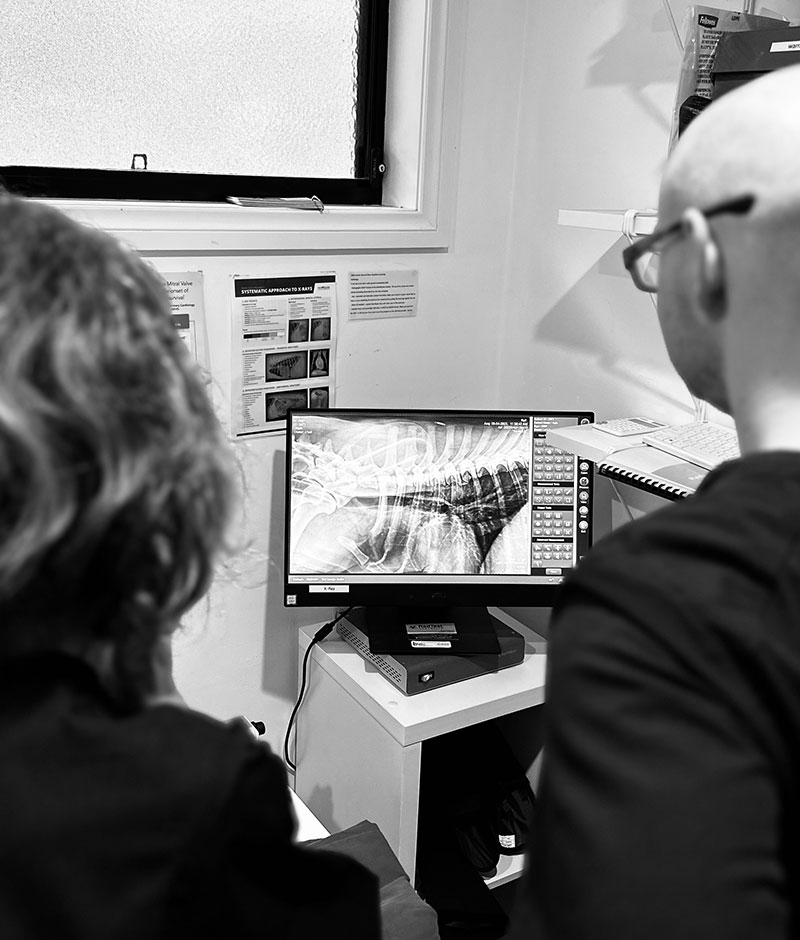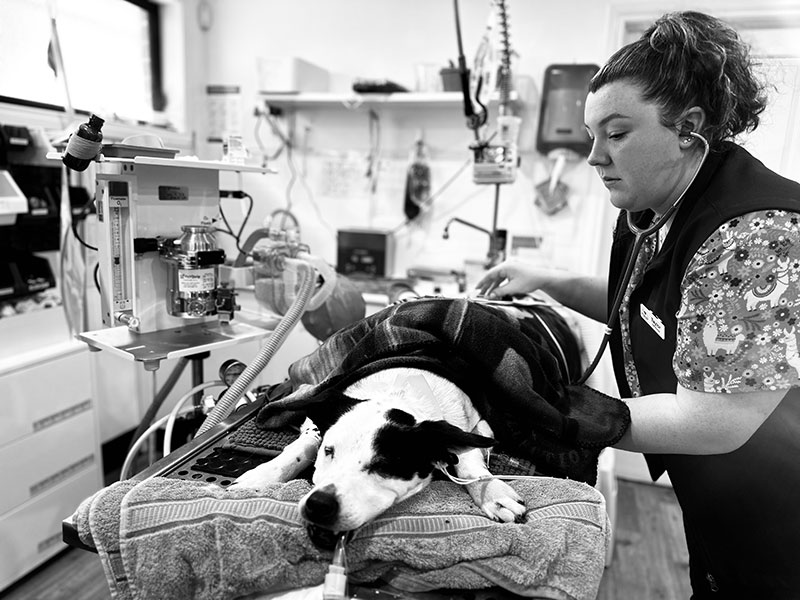Hip and elbow scoring for dogs is important for breeding purposes. It is a radiographic assessment of the hip and elbows of the dog. Our team are able to take the radiographs under a general anaesthetic and provide the required images on a USB (that you provide) so you can submit these for assessment to the Canine Hip and Elbow Dysplasia Scheme (CHEDS).
For more information view the PDF

More advanced imaging is becoming the standard in Veterinary medicine, with increasing access to diagnostics such as CT imaging. Whilst our hospital does not have a CT machine under our roof, we commonly refer to
Charles Sturt University Veterinary Referral Hospital, in Wagga Wagga for CT imaging.
Our team will be able to provide you with the financial details of the imaging, and once completed, we receive a report back and then will contact you directly to provide interpretation and make recommendations based on this imaging.
Ultrasound is another valuable diagnostic tool, which we also have within our hospital. Dr. Sally has a graduate certificate in small animal abdominal ultrasound, and additional training. This means we are able to take referral ultrasounds from other local hospitals, and provide reports back to the primary veterinarian, as well as utilise ultrasound for diagnostic work ups for our own patients.
Unlike radiography, which gives us information about the overall shape and position of bones and organs, ultrasound enables us to look at the internal architecture of organs. This helps us to diagnose a range of conditions from cancer, to foreign bodies, gastrointestinal disorders, kidney diseases, as well as obtain samples from lumps, lesions and fluid from the body for further analysis.
Ultrasound often needs pets to be sedated, simply because it can take from 30 minutes to an hour to do a complete abdominal scan, and without sedation, pets wouldn't tolerate that and be still. Short intravenous anaesthesia is often required for tissue sampling. Abdominal ultrasounds also require the hair on your pets tummy to be clipped very short, in quite a wide area, but this is necessary to be able to obtain the required images and include the whole abdomen.
Our vets will talk to you about any recommendations for ultrasound and what is involved. Generally your pet will be admitted into hospital in the morning, and have a discharge booked with a vet in the afternoon to discuss the results.

Unlike human general practice, imaging is an area where the Veterinary industry shines, because everything is under the one roof! Our hospital is equipped with digital radiography, as well as dental radiography. This means our vets had useful diagnostic tools at the ready!
Radiography in pets, is just like in humans, except we often need to use sedation or anaesthesia when taking the images because our furry friends don't understand they need to sit still, hold their breath or lay in a certain position to take the image.
Find more information on sedation and anaesthesia
All of our vets are trained in taking and interpreting radiographs. However, Dr. Levi has additional training and is pursuing further qualifications in advanced imaging.

When pets need to have an Xray, most of the time sedation or a full general anaesthesia is required. Unfortunately, despite us just wanting to help them, they usually don't understand and unlike humans, they won't allow us to place them in the required positions or stay still enough to enable to imaging. This is very understandable, as they may be stressed or painful. Find more information on sedation and anaesthesia

For all Albury Wodonga Animal Rescue related enquiries please call:
0436 435 035

| Monday | 8am-6pm |
| Tuesday | 8am-6pm |
| Wednesday | 8am-6pm |
| Thursday | 8am-6pm |
| Friday | 8am-6pm |
| Saturday | 9am-1pm |
| Sunday | Closed |
AFTER HOURS VETERINARY INFORMATION
To help keep up with demand, give our vets a rest and to ensure our clients have 24/7 access to vet advice, we have partnered with VetChat for all your after-hour pet care needs. VetChat vets are all Australian board certified, with a minimum of 5 year's experience and are passionate about improving pet health outcomes.
When our hospital doors close each day, VetChat will help us support you and your petby offering primary triage.
After Hours Support Costs:
VetChat
$39.00 6am - midnight AEST/AEDT
$59.00 midnight - 6am AEST/AEDT
If your pet requires emergency critical care, VetChat will alert our vet on call and we will be in contact shortly.
Please Note: The fee for a Vet to attend the hospital after hours is $430. After an examination and consultation, all recommended treatment plans will be discussed, including all additional fees.
To contact VetChat call 1300 215 328 or Click here to proceed to VetChat.